Ditapis dengan
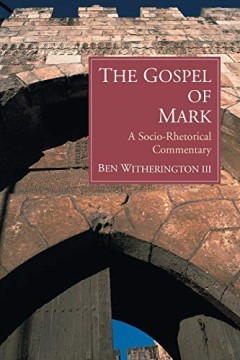
The Gospel of Mark: A Socio-Rhetorical Commentary
This book offers the first sustained attempt to read the Gospel of Mark both as an ancient biography and as a form of ancient rhetoric. Ben Witherington applies to Mark the socio-rhetorical approach for which he is well known, opening a fresh new perspective on the earliest Gospel. Written when the fledging Christian faith was experiencing a major crisis during the Jewish war, Mark provides …
- Edisi
- First Published
- ISBN/ISSN
- 978-0-8028-4503-0
- Deskripsi Fisik
- xxiv + 463 pgs.; 23 cm.
- Judul Seri
- -
- No. Panggil
- 226.3077 WIT g
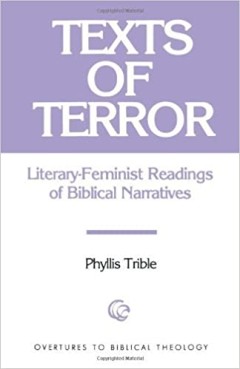
Texts of Terror: Literary-Feminist Readings of Biblical Narratives
Professor Trible focuses on four variations upon the theme of terror in the Bible. By combining the discipline of literary criticism with the hermeneutics of feminism, she reinterprets the tragic stories of four women in ancient Israel: Hagar, Tamar, an unnamed concubine, and the daughter of Jephthah. In highlighting the silence, absence, and opposition of God, as well as human cruelty, Trible …
- Edisi
- First Published
- ISBN/ISSN
- 0-8006-1537-9
- Deskripsi Fisik
- xiv + 128 pgs.; 21,5 cm.
- Judul Seri
- -
- No. Panggil
- 221.922 TRI t
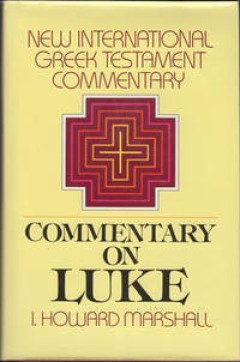
The Gospel Of Luke: A Commentary On The Greek Text
- Edisi
- First Published
- ISBN/ISSN
- 0-85364-203-6
- Deskripsi Fisik
- 928 pgs.; 24 cm.
- Judul Seri
- -
- No. Panggil
- 226.407 MAR g
- Edisi
- First Published
- ISBN/ISSN
- 0-85364-203-6
- Deskripsi Fisik
- 928 pgs.; 24 cm.
- Judul Seri
- -
- No. Panggil
- 226.407 MAR g
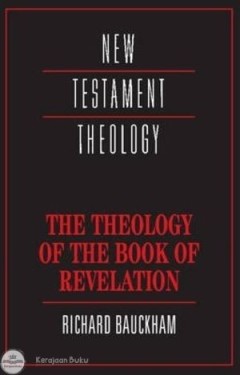
The Theology of the Book of Revelation: New Testament Theology
The Book of Revelation is a work of profound theology. But its literary form makes it impenetrable to many modern readers and open to all kinds of misinterpretations. Richard Bauckham explains how the book's imagery conveyed meaning in its original context and how the book's theology is inseparable from its literary structure and composition. Revelation is seen to offer not an esoteric and enco…
- Edisi
- First Published
- ISBN/ISSN
- 0-521-35610-5
- Deskripsi Fisik
- xv + 169 pgs.; 21,5 cm.
- Judul Seri
- -
- No. Panggil
- 228.06 BAU t
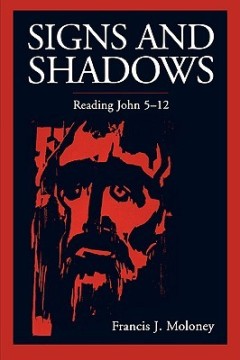
Signs and Shadows: Reading John 5-12
- Edisi
- First Published
- ISBN/ISSN
- 0-8006-2936-1
- Deskripsi Fisik
- xiv + 231 pgs.; 22,5 cm.
- Judul Seri
- -
- No. Panggil
- 226.506 MOL s
- Edisi
- First Published
- ISBN/ISSN
- 0-8006-2936-1
- Deskripsi Fisik
- xiv + 231 pgs.; 22,5 cm.
- Judul Seri
- -
- No. Panggil
- 226.506 MOL s

The Temptation and The Passion: The Markan Soteriology
- Edisi
- Second Edition
- ISBN/ISSN
- 0-521-38360-9
- Deskripsi Fisik
- lxxx + 221 pgs.; 22 cm.
- Judul Seri
- -
- No. Panggil
- 226.3066 BES t
- Edisi
- Second Edition
- ISBN/ISSN
- 0-521-38360-9
- Deskripsi Fisik
- lxxx + 221 pgs.; 22 cm.
- Judul Seri
- -
- No. Panggil
- 226.3066 BES t
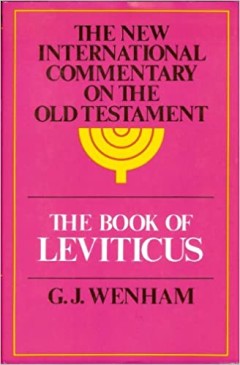
The Book of Leviticus: The New International Commentary On The Old Testament
- Edisi
- First Published
- ISBN/ISSN
- 0-8028-2353-X
- Deskripsi Fisik
- xiii + 362 hlm.; 22 cm.
- Judul Seri
- -
- No. Panggil
- 222.13077 WEN b
- Edisi
- First Published
- ISBN/ISSN
- 0-8028-2353-X
- Deskripsi Fisik
- xiii + 362 hlm.; 22 cm.
- Judul Seri
- -
- No. Panggil
- 222.13077 WEN b
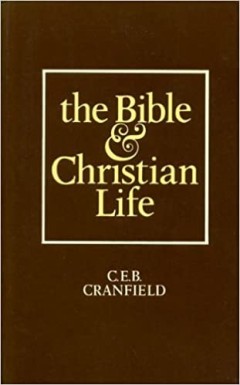
The Bible & Christian Life: A Collection Of Essays
- Edisi
- First Published
- ISBN/ISSN
- 0-567-29125-1
- Deskripsi Fisik
- vii + 248 pgs.; 21,5 cm.
- Judul Seri
- -
- No. Panggil
- 248.4 CRA b
- Edisi
- First Published
- ISBN/ISSN
- 0-567-29125-1
- Deskripsi Fisik
- vii + 248 pgs.; 21,5 cm.
- Judul Seri
- -
- No. Panggil
- 248.4 CRA b
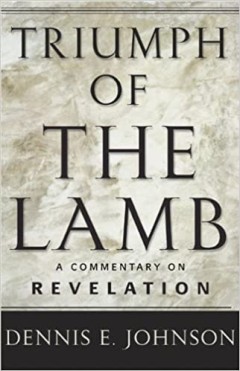
Triumph Of The Lamb: A Commentary On Revelation
The book of Revelation is an unveiling, a vivid disclosure of invisible realities. Yet its bizarre imagery often leaves us puzzled. Dennis E. Johnson deftly guides us through questions about how to interpret Revelation, what it meant to its original audience, and how it equips us today. He explains that Revelation fortifies the church against the Enemy's wiles by disclosing the profound paradox…
- Edisi
- First Published
- ISBN/ISSN
- 0-87552-200-9
- Deskripsi Fisik
- x + 384 pgs.; 23,5 cm.
- Judul Seri
- -
- No. Panggil
- 228.07 JOH t
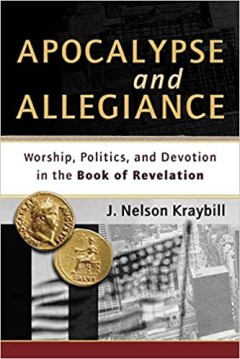
Apocalypse and Allegiance: Worship, Politics, and Devotion in the Book of Rev…
In this lively introduction, J. Nelson Kraybill shows how the book of Revelation was understood by its original readers and what it means for Christians today. Kraybill places Revelation in its firstcentury context, opening a window into the political, economic, and social realities of the early church. His fresh interpretation highlights Revelation's liturgical structure and directs readers' a…
- Edisi
- First Published
- ISBN/ISSN
- 978-1-58743-261-3
- Deskripsi Fisik
- 224 pgs.; 22,5 cm.
- Judul Seri
- -
- No. Panggil
- 228.06 KRA a
 Karya Umum
Karya Umum  Filsafat
Filsafat  Agama
Agama  Ilmu-ilmu Sosial
Ilmu-ilmu Sosial  Bahasa
Bahasa  Ilmu-ilmu Murni
Ilmu-ilmu Murni  Ilmu-ilmu Terapan
Ilmu-ilmu Terapan  Kesenian, Hiburan, dan Olahraga
Kesenian, Hiburan, dan Olahraga  Kesusastraan
Kesusastraan  Geografi dan Sejarah
Geografi dan Sejarah